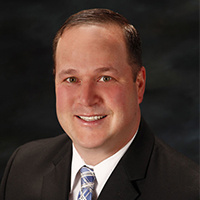 Incline Village Felony Lawyers, Nevada
Incline Village Felony Lawyers, Nevada
Not enough matches for Incline Village Felony lawyer.
Below are all Incline Village Criminal lawyers.
Sponsored Lawyers
1-10 of 26 matches
Criminal, Car Accident, DUI-DWI
I work as a general practice attorney, although my biggest strength is in criminal defense (especially DUI defense). I’m based in Reno, NV and serve the surrounding areas of Northern Nevada. I have been practicing law since 2009 and absolutely love it. I got a bit of a late start, spending time as a correctional officer and a network engineer before deciding what I want to be when I grow up. I graduated from the University of Idaho College of Law at the age of 38. My first seven years of practice were at the Washoe County District Attorney’s office. I learned many of the intricacies and pitfalls of the Nevada criminal justice system. This insider experience gives me a unique advantage in helping you get the best resolution possible for your case. I’m fair, diligent and know many of the key players in the system. I have now opened my own office and truly enjoy the diversity of work and the freedom of planning my time. No matter what you have been accused of, don’t delay, contact me for excellent legal representation. Call now and and put my experience to work for you!
(more)Criminal, DUI-DWI
In Jenny Hubach’s 26 years of legal experience, she has represented thousands of criminal defendants in cases from Capital Murder through trucker traffic tickets. After receiving her Juris Doctor Degree from McGeorge School of Law, she became a member of the Nevada State Bar in 1989. In Jenny’s early career, she was a Deputy District Attorney in Washoe County, Nevada representing the state in criminal cases. She left the DA’s Office and began representing clients in personal injury cases before going into private practice and representing criminal defendants until present. Jenny’s professional accomplishments consist of extensive criminal trial experience, professional recognition, and leadership positions in professional organizations both on the State and National level to include: *Lead attorney in 1000’s of criminal cases in Northern and Southern Nevada. *Has been attorney in approximately 75 jury trials to include 5 Death Penalty murder cases and numerous other murder cases. *18 years as Judge Pro Tem in Reno Justice Court and Reno Municipal Court. (Presided as Judge in hundreds of civil and criminal cases such as small claims, landlord/tenant, general civil, DUI, Domestic Battery, and theft crimes.) *Current Chairperson of The Nevada Continuing Legal Education (CLE) Board. *Current member of the National Mandatory Continuing Legal Education Regulators. (Chairperson of the Las Vegas meeting which was ranked as the most successful national meeting ever, 02/2014). *Reno News and Review, Attorney of the Year, 2006, 2014. *BV Rated by Martindale-Hubble in Legal Ability and Ethical Standards. *Top 100 Criminal Defense Attorneys, 2014. *Former member of the Nevada State Bar Board of Governors. *Former Chairperson of the Nevada State Bar Advertising Review Committee. *Former Chairperson for the Second Judicial District Court Committee to Establish Local Criminal Procedure Rules. *Former member of the Nevada State Bar CLE Committee. *Former Adjunct Professor in Criminal Law, University of Nevada and Truckee Meadows Community College.
(more)Estate, Divorce & Family Law, DUI-DWI, Accident & Injury
David C. O’Mara’s practice is concentrated in appellate advocacy, bankruptcy, family law, personal injury, civil litigation, and securities and shareholder disputes. As a native Nevadan, with over a decade of experience practicing in the state, David has developed a comprehensive understanding of the nuances of Nevada law and practice. David has been involved in numerous securities and shareholder actions which have resulted in the recovery of millions of dollars to the shareholders. In addition, David has successfully represented his clients at all state and federal courts in Nevada, including bench trials, jury trials and appellate arguments in the Nevada Supreme Court.
(more)






